- Home
- Susanna Kearsley
Desperate Fortune Page 2
Desperate Fortune Read online
Page 2
“Yes, well, there’s one problem with your logic,” Jacqui told me.
“What’s that?”
“The code you’ve got there,” she informed me, “is not the one Alistair needs to have broken.”
My pencil paused, but only briefly, because I was too far along to just stop. “Then why do I have it?”
“It’s sort of a test. I told Alistair you were a wizard with codes and things, and he said if you cracked this one in under a week, he would not only hire you, he’d buy you a bottle of whisky.”
I wasn’t sure what letter had been flipped with r. The first word, with its double r, was likely my best clue. It might be meant to be a double l, perhaps, or double t. Since t was the most common English consonant, I went with that. Jetteq, read the first word now, unhelpfully. “He knows what this says, then?”
She nodded. “It’s out of an old book, or something.”
I had only two bits of the cipher left to unravel.
“Tell Alistair Scott,” I said, “that if he’s buying me whisky, my preference is sixteen-year-old Lagavulin.” I jotted the translation down and rotated the paper to slide it back over the table towards her.
I knew that I’d done it correctly when I saw her smile. That was how Jacqui always smiled when I did something to make her proud. “See? I was sure you could do it.”
“I’m not a real code breaker.”
“Sara.” She held up the paper. “You solved this in seventeen minutes. You’re good at it.”
Probably not good enough, said my inner perfectionist.
Jacqui, who’d known me so long and so well that she likely could hear that voice, too, said, “Come with me tomorrow, I’ll take you to meet him.”
“To Paris? Be serious.”
“Alistair Scott’s not in Paris.”
“But you said—”
“He only lives over the river, in Ham. It’s the job that’s in Paris.”
She asked me again to come meet him, and of course I told her yes, because I knew she wouldn’t let it go until I gave the answer that she wanted. But my gaze stayed on the paper in her hand while we were talking, and I wondered who had written it, and whom they’d meant to warn with those four words. Not me, I knew…and yet the final two words resonated, curiously:
Letter intercepted. France unsafe.
Chapter 2
I’d never been to Ham. It lay not all that far from the grand Tudor palace of Hampton Court, but on the opposite shore of the Thames, the south shore, where the river bent round on itself on its lazy way down into London.
We drove down in the early afternoon, and Jacqui used the time to brief me on the things I should avoid in conversation. “And whatever you do, don’t say anything nice about Calum MacCrae.”
“Not a problem. I haven’t a clue who that is.”
“You are joking.” She glanced at me. “Oh, right. You don’t watch television at all, do you? Calum’s a popular history presenter on BBC Four, and a bestselling author besides.”
“So a rival of Alistair Scott’s?”
“More than that. A usurper.” She said the word decidedly. “Alistair was a celebrity once, you understand. The champion of Scotland. He set out to write this tremendous great trilogy, and when the second book came out it struck that magic chord you always hope a book will strike. The stars aligned. The critics loved it, readers too. It hit the charts and stayed there. He was courted by the BBC, their darling boy, presented documentaries for years for them. Whenever they were after someone for a comment about anything to do with Scottish history, it was Alistair they called upon. Then Calum came along, and he was younger, smoother, bolder, with a brand-new book to peddle and a very clever publicist. And before you know it, he’d edged Alistair aside. The BBC stopped calling altogether.”
“That must have been upsetting for him.”
“Not as upsetting as seeing MacCrae’s books sell better than his and win all the awards.”
“Are they better books?”
Jacqui was fair in her judgments. “No. Calum’s all flash and good hair and tight trousers. His books are entertaining, but he’ll be the first to admit that he rarely goes back to the primary sources; he reworks what others have written before him and makes it more colorful, puts his own stamp on it. But because he doesn’t footnote, doesn’t give a bibliography, you have to take his research and the things he says on trust. And that drives Alistair completely mad. Alistair,” she said, “goes deep with his research, leaves no stone unturned, and keeps notes about everything.”
“My kind of man.”
“Yes, I think you’ll get on well. I hope that you do. This is such a huge thing for him, writing this book. For a few years he didn’t write anything, nearly gave up. Now he’s finally committed to writing the last of the trilogy. I think he views this as his chance to win back his crown, in a way.”
I was thinking of that for the rest of our drive into Ham, while I watched the passing sky. I knew that when the sky in mid-December was this clear and blue, it meant the air outside was freezing cold—a lesson Jacqui had apparently absorbed as well, for here, instead of dressing with an eye to fashion as she did in London, she was wrapped up in a warm but shapeless coat that looked about as old as I was, and as we stepped from the car she drew on woolly mittens and a hat.
“He’ll be outdoors,” was her reply when my expression couldn’t hide my curiosity. “He likes to walk, does Alistair. The last time I was here, last month, he had me on the towpath, walking all the way to Kingston. In the rain.”
There was no sign of rain today, and it appeared there were plenty of places for walking right here in the village. We’d parked near the Common, just steps from the start of the long and tree-lined avenue—now only for pedestrians and cyclists—that would have taken us straight to the ancient stately home of Ham House, if my memory of the map I’d looked at earlier this morning was correct. Instead, we turned the other way and crossed the quiet street to where a double row of trees, some newly planted in among the old, continued that same straight line of the avenue from Ham House, leading out onto the broad green of the Common.
Ham Common, I knew from my previous look at the map, was diverse and large—a mix of wilder wood and open green space, as it would have been from feudal times, when every peasant farming in the village for the lord who owned the manor had the right to let his livestock graze upon the common pastureland, or cut wood from the section of the forest that the lord allowed the villagers to share.
This north end of the Common, like a great expansive pie-shaped wedge of green, crossed by the shadows of the leafless trees that edged it, had been bordered on three sides by streets with elegant old houses that stood back a pace, behind their high brick walls and hedges, gazing out across the Common with an air of graceful permanence.
It was, I thought, the perfect postcard view of what an English village green should look like, right down to the pond at the far corner, with its trailing golden willows and its noisy scrambling ducks; the perfect setting for the white-haired man who stood a little distance off, smoking a pipe and throwing something for his dog to fetch. In his dark green wax jacket and a tweed flat cap, he looked the very picture of an English country gentleman.
Except his voice was anything but English.
“Och, ye numpty,” he was saying to the dog, with great affection, “it’s behind you.”
I had never seen that breed of dog before. Had it been a different color, I’d have said it was a setter, only I’d never seen a setter that wasn’t Irish red or English speckled white-and-brown. This one was black. Its wavy coat was marked with chestnut brown on legs and throat and muzzle, with two small brown marks above its eyes that looked like eyebrows. Turning round and round again in search of the dropped object, it snuffed the ground halfheartedly before it caught our scent instead and with a panting grin of welcome came acro
ss to greet us.
“Hello, Hector.” Jacqui liked dogs well enough, but didn’t pat them. Hector had to come to me for that, and when I scratched his ears it set his feathered triangle of a tail in motion.
Jacqui, continuing on, told the man, “We’re a bit late, I’m sorry. Did you get my text?”
“Aye. No problem. I never expect you on time.”
Alistair Scott was a tall man, well built, with a face that I guessed would have once been incredibly handsome, and still drew the eye. Even mine, and I normally didn’t find bearded men all that attractive. His beard, neatly trimmed, was the same ivory white as his hair, also tidily clipped and kept short, and his eyes were a warm, lively brown.
To be honest, though, I didn’t notice most of that till later. At the moment, I was looking at the dog. His eyes were warmly brown as well, the little chestnut marks above them giving him a questioning expression, as I asked, “Is he a setter?”
“Aye. A Gordon setter. Hunting dogs, they’re meant to be, and Hector would have been as well, if his fool of a first owner hadn’t ruined him. She took him on a full day’s hunt afore he’d ever heard a gunshot. After that, if anything went bang, he’d tuck his tail and run. His owner didn’t want him, then. She sent him to the pound.”
“And so you rescued him?”
“Aye. It was never his fault, and you don’t cast a life aside like that.” Alistair Scott had been walking towards me while he had been talking, and now he bent briefly to rumple the dog’s ears himself, with a leather-gloved hand. “He’s got lots of good years in him yet.” He fell silent for a moment and I wondered, given what my cousin had been telling me, if he was thinking not about the dog but of himself. Then he roused himself and added, “He’s a brilliant fetcher still, for all that, but today his mind’s elsewhere.”
I asked, “Hunting for birds, was she, Hector’s first owner?”
“Aye. Pheasant.”
“Well, that’s why he’s stressed, then.”
I noticed the pause while both Jacqui and Alistair Scott studied Hector as though they were looking for evidence that he was stressed. I felt sure they would see it. The signs were so obvious.
But to be perfectly clear, I glanced back at the pond, with its flurry of ducks, then I nodded at Hector, who was panting with the corners of his mouth drawn back, his ears tucked closely to his head. “He doesn’t like the birds,” I said. “You want to take him further down the Common, he’ll be happier.”
This second pause was shorter, but it gave me time to realize that I hadn’t introduced myself yet, properly, the way that normal people did. I forced myself to look away from Hector for a moment, raised my head and held my hand out. “Pleased to meet you, Mr. Scott. I’m Sara Thomas.”
“Alistair.” He took his glove off when he shook my hand—the mark, my father always said, of a true gentleman. “And yes, I thought you might be. Shall we?”
As we walked further away from the pond, down the side of the Common, his gaze moved from my face to Jacqui’s and back, and I guessed he was trying to find some resemblance. There wasn’t one. Jacqui always looked as though she’d stepped out of a fashion plate, her dark hair in its well-cut bob that fell back into place no matter how the wind was blowing, whereas my hair was more frequently a wild and tousled mess that couldn’t quite decide if it was blond or brown and, trying to be both, fell in between. It wouldn’t keep to any style, so I just kept it on the shorter side and trusted that its shagginess would seem all of a piece with my informal sense of fashion.
I liked scarves, and winter gave me an excuse to wear them daily. I had chosen for today a thickly woolly one in stripes of green and orange with a fringe that hung below the hip-length hem of my old quilted coat and brushed my jeans. If I’d been meeting just with Jacqui, I’d have changed the laces in my boots to green and orange, too, to match, and chosen one glove of each color from the jumbled basket in my entry hall. But first impressions, I knew, were important, and Alistair Scott was a man of tradition, so I’d kept my bootlaces black, and my gloves black, as well. They were kid suede and very expensive, a gift from my mother last Christmas, but I found them stiff. I’d been happy to slide my hand free for the handshake. I kept it free just a bit longer, to give Hector’s silky-soft head one more pat as he circled my legs.
“He likes you,” said Alistair Scott. “He’s not often so friendly with strangers.”
“Yes, well, dogs can always spot the dog-deprived.”
He smiled. “You haven’t got one of your own?”
“I don’t have any pets. I wouldn’t want to leave them on their own all day, while I’m at work.”
My mention of work made him shift topics. “Jacqui,” he said, “tells me you’re between jobs, at the moment.”
I considered this, sliding my glove back on. “Well, that depends.”
“On what?”
“Whether I’m working for you.”
He looked down at me, smiling more broadly. “You’re very direct, aren’t you?”
“Sometimes. I’m not a professional code breaker, though. You do know that?”
“Your cousin says you cracked that cipher in seventeen minutes,” he said. “At a party.”
“A wedding reception. And it wasn’t a difficult cipher. I gather the one that you’d want me to work on is different?”
He nodded. “But written the same year. There might be some overlap.”
“And it’s in Paris?”
“The outskirts of Paris,” he told me. “Chatou. It’s a suburb, just west of the city itself.”
“There’s no chance I could do the work here, from a copy?”
“The owner is very…” He searched for the word, until Jacqui supplied it:
“Insistent.”
“Aye.” Alistair Scott nodded. “Very insistent the source can’t be copied, or taken away from the house. But she’s willing to give you a room for the time that you work on it.”
Frowning a little, I asked, “And how long would that be?”
“That depends,” he replied, in his turn. “Once you’ve worked out the cipher itself, it will probably take a few weeks to transcribe the thing.”
We had come halfway down the long green of the Common now, midway between the pond end and the road to Richmond, where the cars were passing in a shifting dance of color. “And what,” I asked Alistair Scott, “is ‘the thing’? Jacqui mentioned an old book?”
“A diary,” he said, to correct me. “A handwritten diary, kept by a young lady named Mary Dundas.” He gave it the Scottish inflection: Dun-DASS.
I stopped walking when the others did and watched Hector, no longer stressed, bound out to recover the object his master had thrown—a stuffed red canvas cylinder, roughly the size and the shape of a compact umbrella when folded. A remnant of his training days, I guessed. Bird dogs were meant to have soft mouths, and not carry anything hard. Hector brought his prize happily over to me, long tail wagging, and taking the cylinder’s toggled end I threw it out again for him.
“Was she someone important, this Mary Dundas?” I asked.
Alistair Scott shook his head. “Quite the opposite. She was, from what I can gather, an ordinary girl. I expect that her diary will be about ordinary things. That’s what makes it so valuable.”
“How so?”
“You’ve not read my books,” he observed, very certain.
“I haven’t, no.”
“I write the history of ordinary people. The kings and the queens and the nobles don’t interest me nearly as much as the people they ruled.”
Jacqui told me, “This new book that Alistair’s writing is all about Jacobite exiles.”
She said that as though I should know what those were, and I nearly just nodded and answered with something like “Ah,” so as not to reveal my own ignorance, but I was spared that when Alistair Scott asked,
straight out,
“D’ye know much at all about Jacobites?”
Truth, in the face of a question, came easily. “No.”
“Scottish history, in general?”
“Not much.”
“Well now, my country has a complicated past. A group of tribes all trapped together by geography, who’d sooner stab each other in the back than build a nation,” was his summary. “And when the Reformation came, religion only made those old divisions that much stronger.” He threw the canvas cylinder for Hector, further than my own throw, far out on the green. “The Highlanders stayed Catholic, and the rest turned either fiercely Presbyterian or fell between the two camps and became Episcopalian. And ruling them—or trying to—you had the line of Stewart kings and queens, whose own alliances with France were both a blessing and a curse to them.”
“Like Mary, Queen of Scots,” I said.
“Exactly. And her son, King James the Sixth, who afterwards became King James the First of England also, when the English Queen Elizabeth the First died with no children to succeed her.”
“And King James the Sixth,” I asked. “Was he a Catholic or a Protestant?”
“Protestant. As was his son, Charles the First. But Charles thought a king was above being ruled by his people. They didn’t agree. That’s what led to the Civil War. After a few years of battles, King Charles made a tactical decision to seek protection from the Scottish Presbyterians. A poor decision, as it happened, since their army held him prisoner, made a deal with England’s Parliament, and sold him to them for just under half a million pounds.”
“And Parliament beheaded him.”
“They did, aye. And put Cromwell in his place, to lead without a king for several years, and in this time the widowed queen with all her children fled to France. The French king was her nephew, her own brother’s son, and so he gave her refuge in a palace of her own at Saint-Germain-en-Laye. Now, Charles the First had several children, but you only need mind two: young Charles, who would become King Charles the Second in his turn, and James, his brother. James was sixteen when his father died, and twenty-seven when the English Parliament restored his brother Charles to the throne. As Duke of York, James earned a reputation for himself as a great champion of the navy, a well-respected man, even though unlike his brother he openly practiced his faith as a Catholic. And when James was fifty-one, Charles the Second died, and James was crowned king.”

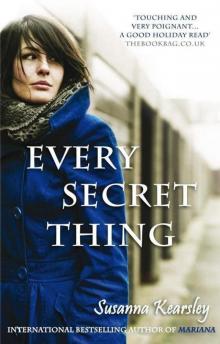 Every Secret Thing
Every Secret Thing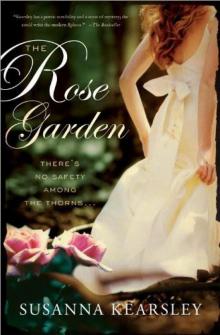 The Rose Garden
The Rose Garden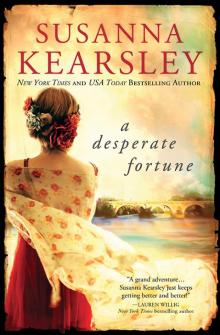 A Desperate Fortune
A Desperate Fortune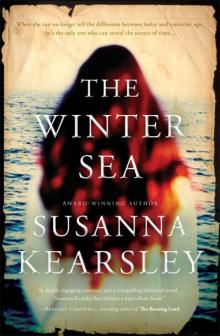 The Winter Sea
The Winter Sea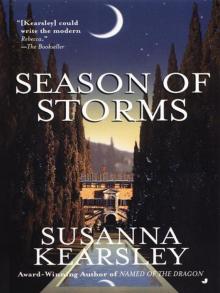 Season of Storms
Season of Storms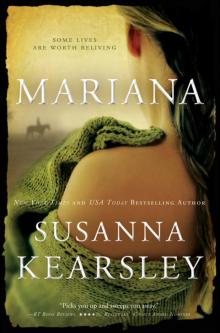 Mariana
Mariana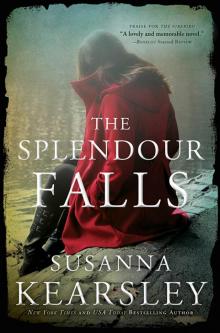 The Splendour Falls
The Splendour Falls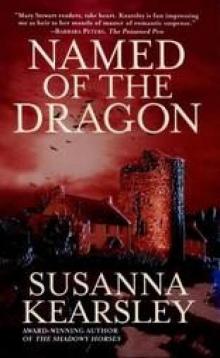 Named of the Dragon
Named of the Dragon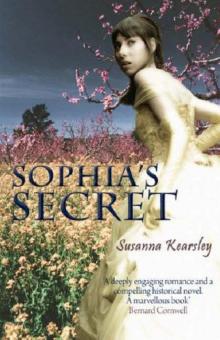 Sophia's Secret
Sophia's Secret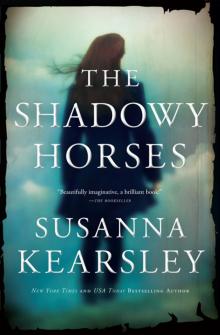 The Shadowy Horses
The Shadowy Horses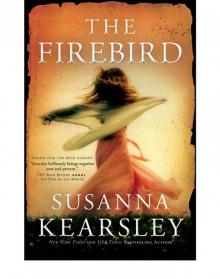 The Firebird
The Firebird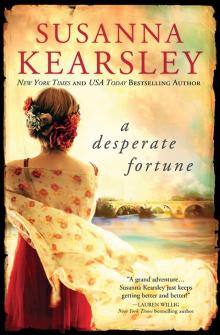 Desperate Fortune
Desperate Fortune